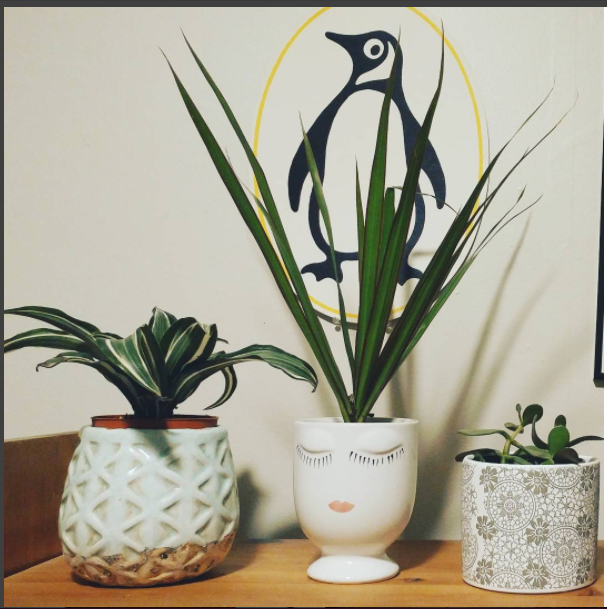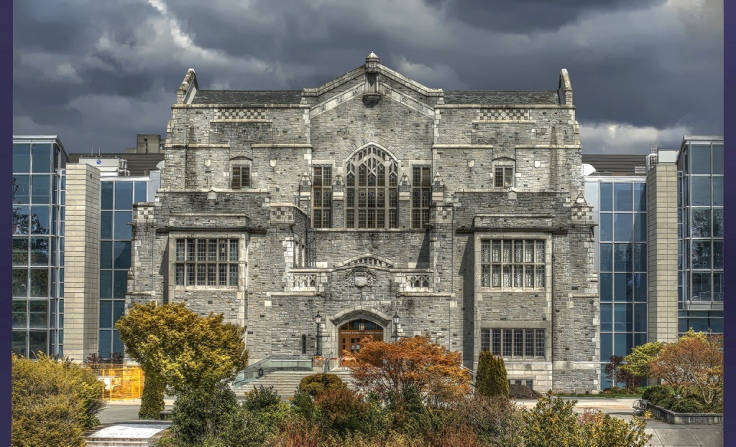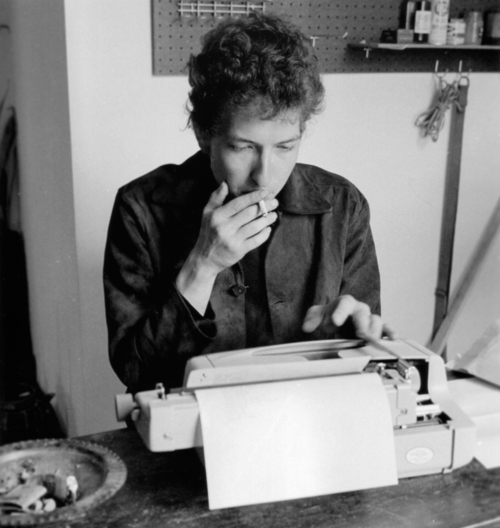

Books have to stay in tune with the digital age to maintain any saliency with younger crowds. So listen here authors, writers, publishers, and marketers: think video.
Countless reports are claiming that videos are the “future” of the internet. Young people online are increasingly engaging with and posting videos. Scroll through your Facebook feed — videos are lined up and playing automatically for ease of watching. Click onto a website, a video ad is already playing on the sidebar; scroll through Instagram, a Boomerang video is on a loop — it’s almost impossible to avoid.
Check out this report from Buffer that explains video is hitting its peak. Social media platforms like Facebook are capitalizing on video, but many companies have a lot of catching up to do. Now is the time to stay ahead of the herd.
How does this relate to the book world? Books are still loved for their antiquated charm. The smell of the pages, the feel of paper between fingertips, sketching a note in the margins — these moments are prevailing over the digitized story. But, that cannot be said for the promotion of and brand building of books.
Author Rachel Hollis has taken to the video scene show a “Day in the Life of an Author.” and she has thousands of views.
Bookworks and others are trying to get this knowledge to book creators. The post also gives examples of effective ways authors can use video to promote their book and their brand. The post also explains to readers how to use Youtube… which, really, I’d hope is second nature to anyone trying to reach an audience online.
Think of vloggers, they connect to their audience because they are relatable while also desirable. We see ourselves in them, but also want to be more like them. Companies are taking note — even Hootsuite CEO is using video to better connect with the platform’s users.
For authors, video is a great way to get personal with their fan base. Authors can give snippets of themselves #irl (in real life). Providing live video scenes of launches and events is a great way to connect a community online in real time. It’s the perfect opportunity to show a personality behind the book that is relatable and engages with readers.
The book scene needs to find complementary ways of including digital media into their world. People may not be totally sold on digital books, but there are tons of other ways that readers engage online that publishers can use to their advantage.
Post your ideas in the comments below!
The Garrison, 1197 Dundas St W
The Garrison is a favourite of mine. Like Studio Bar, there’s a bar in the front, but it is sectioned away from the stage and venue space in the back, which makes the event seem more intimate. Whoever is back there wants to hear the reader (or whomever the performer may be). It creates more of a buzz. There’s a small bar in the back as well. Also, if you missed dinner, you can grab a cheap taco or burrito, and they ‘aint half bad!
The Bell Jar, 2072 Dundas St W
This cute café is a popular spot for intimate poetry readings and other independent literary events. There are amazing treats and drinks. It makes for a good day or evening venue.
Studio Bar, 824 Dundas St W
Studio Bar is a perfect venue space. The front is furnished with seating beside a long bar. The entrance greets guests with a tapas bar where food can be ordered. Then, of course, is the stage venue in the back. People can sit along cushioned walls or stand up close to the star of the show.
Handlebar, 159 Augusta Ave
So hip. So Kensington market. This is a smaller more cozy venue. There’s a small space in the back where the performer can read, and the audience sits throughout the bar. It’s a cheap and easy spot for guests.
Supermarket, 268 Augusta Ave
Another great bar in Kensington Market, this venue has lots of space. There’s a big bar and seating in the front and then the stage sits in the back, slightly partitioned from rest of bar. Keep in mind, if this is a paid event, people can hear and see the stage fine from the bar space… so could be hard to encourage people towards paid space.

Joseph Boyden, with the support of many major authors, wrote an open letter criticizing UBC’s allegations against author and professor Steven Galloway. http://www.ubcaccountable.com/open.letter/steven-galloway-ubc/
It resulted in huge backlash and the tag #canlitaccountable
[CW: Galloway Case] “It reads like Canada’s most powerful authors saying be quiet” https://t.co/RxQzIQMUab #CanLit #CanLitAccountable
— AtiraWRS (@FreeOfViolence) 17 November 2016
Thank you Zoe. Disappointed in the signatories reification of a culture of suppression & silence re: CanLit abuse. #canlitaccountable https://t.co/0yPX7pyuwn
— Nikki Reimer 💀 (@NikkiReimer) 16 November 2016
For any person who has been a victim of abuse, this letter must have been devastating. It’s clear that the authors have made up their minds: Galloway is innocent. A letter of this nature sympathises with the accused, and in doing so encourages victims to be silent to the benefit of their harasser’s “reputation” and “health.”
What’s worse, is there is barely any mention of the potential victims. Allegations were made — a rare act due to the fear of being silenced, shamed, and/or ignored afterwards. The least they could have done was acknowledged those who may have been harmed. By focusing only on Galloway’s need for redemption and justice the authors for this letter either forget or, worse, ignore the dire problem of unreported sexual harassment.
“No wonder that women are hesitant to step forward to call out sexual harassment and violence. No wonder that few women report rape to the police. In our judicial and parajudicial systems, every accused person has a right to a vigorous defence.” Lawrence Hill wrote in response.
As such, this letter has been heartbreaking for fans of some of Canada’s greatest authors: Madeleine Thien, Yann Martel, Margaret Atwood, Lisa Moore, Michael Ondaatje, Vincent Lam, Jane Urquhart, and many more who signed the letter. (Note, some have since withdrawn their name from the letter.) Why would they show support for the accused and work to silence those who made the allegations?
I understand this. However, I sincerely hope the real problem here is not the intent of the letter, but how it was written — ironic considering it was penned by some of Canada’s best authors.
The insensitivities of the letter distract from some genuine problems — the problems, I’d like to believe, these authors intended to highlight:
The university’s procedures are murky at best
- The Memo
A memo was released saying allegations were made against Galloway and students should come forward should they have safety concerns. Of course, the memo was followed by major media scrutiny against the professor.
This is difficult. We have to admit that this hinders a crucial universal right: innocent until proven guilty. If we agree this is an important human right, how can this process be improved to protect the identity of both parties and others until guilt is proven?
- The independent investigation
According to this article, independent investigations are often to the benefit of the victim. It should allow a more comfortable platform for victims to come forward, and provide an easier process than criminal court which would require more evidence, fees, lawyers, and stress in general. Of course, independent investigations aren’t perfect and work to benefit the university as well. “In informal processes, offenders will almost never face harsh punishments such as suspension, expulsion, or in the case of a professor or staff member, firing. Instead, there may be mediation – with the victim – or education.” Was this the best way to find the truth behind the allegations and bring full justice?
- The “verdict”
In this case, the accusations against Galloway were found to be unsubstantiated and yet he was terminated from his position. This must be frustrating from both points of view. If he wasn’t guilty, why was he fired? If he was guilty, why were the claims said to be unsubstantiated? This is opaque and should be addressed by the university. If he is guilty, the victim(s) should feel that the complaints were acknowledged. And if not, a career should not be affected.
Asking these questions is important; blindly defending Galloway is the wrong way to go about it. While the authors were trying to break open a vague university process, they forgot to consider the implications if their wording. They weren’t asking for the benefit of everyone, but to the benefit of their friend and colleague.
No matter what, this letter should make everyone seriously consider how we ought to bring justice and fairness to cases of sexual harassment. What does it mean for the claims to be unsubstantiated? How can this be proven? What are the best ways to bring relief to a victim immediately while also taking the accused’s assumed innocence into account? How can we maintain privacy while also bringing light to unsafe situations?
Let me know your thoughts in comments below. This is important and delicate. I’d like to know what others think.
Oh no! The Giller Prize is tonight and I haven’t read all (*cough* any) of the nominees!
Not to fear! I’ve compiled a quick Goodreads list for you to catch up — then you can fake it ‘till you make it through the Giller Prize Bash

The Wonder, Emma Donoghue
https://www.goodreads.com/book/show/28449257-the-wonder?from_search=true
The Best Kind of People, Zoe Whittall
https://www.goodreads.com/book/show/29220492-the-best-kind-of-people?from_search=true
13 Ways of Looking at a Fat Girl, Mona Awad
https://www.goodreads.com/book/show/25716567-13-ways-of-looking-at-a-fat-girl?ac=1&from_search=true
The Party Wall, Catherine Leroux, Lazer Lederhendler
https://www.goodreads.com/book/show/27133420-the-party-wall?from_search=true
Yiddish for Pirates, Gary Barwin
https://www.goodreads.com/book/show/25893536-yiddish-for-pirates?ac=1&from_search=true
Do Not Say We Have Nothing, Madeleine Thien
https://www.goodreads.com/book/show/27876415-do-not-say-we-have-nothing?ac=1&from_search=true
Bob Dylan winning the Nobel Prize in Literature came as a shock, particularly to book nerds such as myself. How did Dylan surpass Murakami? Why were his lyrics equated with the works of Munro or Coetzee?

Online, I felt the wrath of fellow bookworms in pique: http://www.theglobeandmail.com/arts/a-hard-rains-a-gonna-fall-on-the-nobel-committee/article32352344/
But then, I found this article, and it made me pause: http://www.latimes.com/books/jacketcopy/la-ca-jc-bookless-nobel-20161014-snap-story.html
Let’s get back to basics — What is literature? “Written works, especially those considered of superior or lasting artistic merit.”
Why did Bob Dylan win? “For having created new poetic expressions within the great American song tradition.”
Dylan’s winning the award forces us to reconsider what literature is, and what deserves literary applause. Here are some thoughts:
We can safely say that lyricism is a form of literature, but I hesitate to say lyric writing should be judged by the same principles as a short story or a lengthy novel. Podcasts, operas, blogs, etc., are all different mediums of literature (though it would be hard to say any blog is of of lasting artistic merit), all with vastly different creative procedures. In a prize that looks at the value of different literary fruit, it’s hard to put the apples up against the oranges.
I appreciate the idea of expanding to new literary forms to reflect a new age of media that ought to be noticed — but with more literary mediums comes more standards by which to judge. Should Dylan ever be on the same list as Hemingway? I’d argue not. Should Dylan be awarded for his lasting impression on song-writing? Sure, but perhaps somewhere else.
Are you encouraged or disappointed that Bob Dylan won? Who should have won instead?

